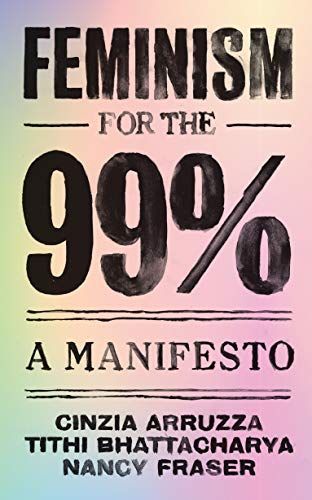
Feminism for the 99 Percent A Manifesto
Named one of Vogue's "Most Anticipated Books of 2019" This is a manifesto for the 99 percent Unaffordable housing, poverty wages, inadequate healthcare, border policing, climate change--these are not what you ordinarily hear feminists talking about. But aren't they the biggest issues for the vast majority of women around the globe? Taking as its inspiration the new wave of feminist militancy that has erupted globally, this manifesto makes a simple but powerful case: feminism shouldn't start--or stop--with the drive to have women represented at the top of their professions. It must focus on those at the bottom, and fight for the world they deserve. And that means targeting capitalism. Feminism must be anticapitalist, eco-socialist and antiracist.
Reviews
Rebecca@rebeccalk
Katarína Fialová@palmdreams
Caroline Lewicki@clewicki20
Julia A.@brizna
Kathleen Boyle@kitkath
Sophie Shrimpton@sinta
Hidde@hdv
Nica Rhiana@paperback
Maja Čuljak@azdaja
Thomas Steur @brainforshit
Joël@joelsreads
Ana Hein@anahein99
Cristina P Miclea @cristinapmiclea
Katie Chua@kchua
Casey Montana@caseymontana
Sofia Collodel@sophiie91
Ella@ellathebug
Raquel F@raquelf
Jess Mingrino@jessmingrino
Karolina@fox
Abbey@asap_abbey
Tüzin@tuzin
Jen Taylor@jen_n_taylor
Eelke Bo van de Weerd@Eelke